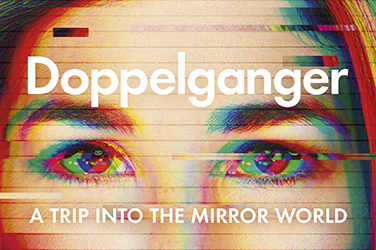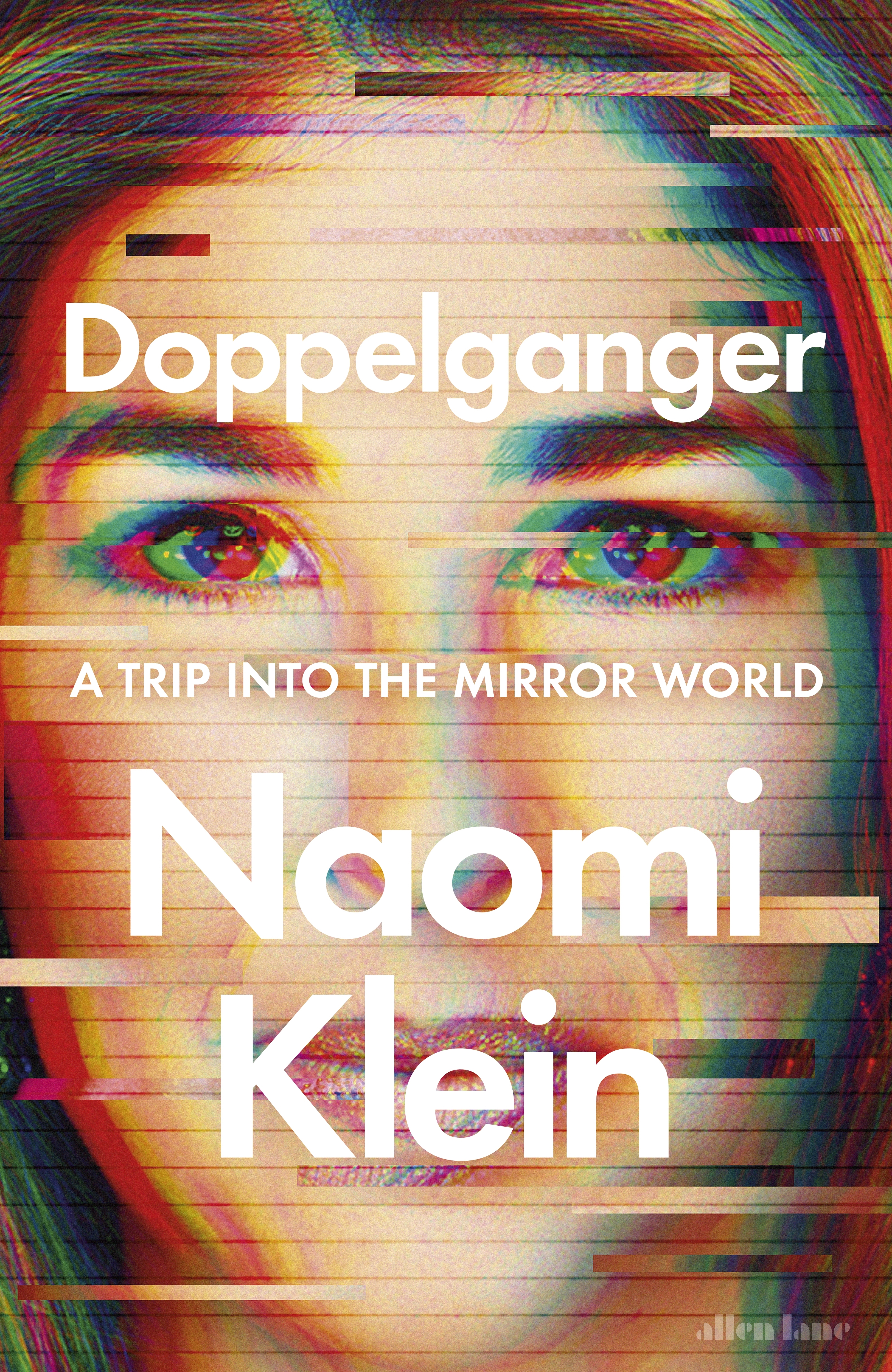
- Free Article: No
- Contents Category: Society
- Review Article: Yes
- Article Title: The other Naomi
- Article Subtitle: Oscillating between hope and despair
- Online Only: No
- Custom Highlight Text:
For over a decade, Naomi Klein – the avowedly left-wing Canadian journalist and activist, best known for her first and third books, No Logo: Taking aim at the brand bullies (1999) and The Shock Doctrine: The rise of disaster capitalism (2007) – has been ‘chronically confused’ for ‘the other Naomi’, American writer Naomi Wolf, who first made her name with the feminist best seller The Beauty Myth (1990). Across that period, Klein’s ‘big-haired doppelganger’ has morphed into ‘one of the most effective creators and disseminators of misinformation and disinformation’ of recent times, a development that has led some to remark that Wolf is in fact a ‘doppelganger of her former self’.
- Featured Image (400px * 250px):

- Alt Tag (Featured Image): Zora Simic reviews 'Doppelganger: A trip into the mirror world' by Naomi Klein
- Book 1 Title: Doppelganger
- Book 1 Subtitle: A trip into the mirror world
- Book 1 Biblio: Allen Lane, $36.99 pb, 352 pp
- Book 1 Cover Small (400 x 600):

- Book 1 Cover (800 x 1200):

Now Klein has written a book which is ostensibly about being ‘a double of a double, an uncanny state of affairs that even Freud did not anticipate’. As far as hooks go, it is pure clickbait, but, as its heft and subtitle suggest, Doppelganger is a lot more wide-ranging and multilayered than its entry point. This is not surprising – Klein’s method is to join the dots, or what she calls ‘pattern recognition’. Against the ‘torrent of disconnected facts’ on social media, Klein, as a ‘researcher-analyst’, aims to ‘create some sense, some ordering of events, maps of power’. In this regard, Doppelganger is business as usual. By following Wolf into the ‘mirror world’ where conspiracy theories thrive and mutate, Klein scrutinises the disruptive, contradictory, and ongoing effects of the Covid pandemic, updating her earlier insights on branding (No Logo) and disaster capitalism (The Shock Doctrine) along the way.
Wolf’s ever-expanding list of causes and provocations – from opposing vaccines and vaccine passports in the name of ‘freedom’, to her entanglement in the ‘autism misinformation movement’, to showing off her first gun – certainly gives Klein plenty to work with. For readers who are curious about Wolf’s reinvention as, among other things, a ‘CEO of a tech company’ who was spectacularly, if temporarily, thrown off pre-Elon Musk Twitter for tweeting Covid misinformation such as that vaccinated people are polluting the sewage system, Klein offers some illuminating, if familiar, suggestions. The public humiliation Wolf endured after a 2019 interview with the BBC promoting her book Outrages: Sex, censorship and the criminalisation of love revealed that she had misunderstood the nineteenth-century legal term (‘death recorded’) fundamental to her entire argument offers one ‘origin story’, according to Klein. But there are other explanations, including the general trajectory of Wolf’s style of liberal, individualist feminism, and the ‘values of the attention economy, which has trained so many of us to measure our worth using crude, volume-based matrixes’.
More interesting is Klein’s discussion of Wolf’s success in the ‘mirror world’, as it offers her a very useful way of comprehending the increasing allure and growth of ‘strange bed-fellow coalitions’ since the onset of the pandemic. Klein provides historical context and precedents to unlikely alliances – like Wolf’s with Steve Bannon (she is a fêted and frequent guest on his War Room podcast) or the wellness crowd with the far right – as well as a handy name and explanatory framework. They are ‘diagonalists’, a term developed by scholars William Callison and Quinn Slobodian to describe those who eschew ‘conventional monikers of left and right’, ‘express ambivalence if not cynicism towards parliamentary politics’, and ‘blend convictions about holism and even spirituality with a dogged discourse of individual liberties’. Their spokespeople, including Wolf and Bannon, Klein elaborates, are skilled at profiling the issues that the mainstream is ignoring and at sounding reasonable, concerned, and inclusive while brazenly co-opting the language of anti-fascism and the tactics of civil rights movements and pursuing eugenicist, even genocidal, agendas (Klein does not shy away from using such words when she deems it necessary).
The affective dimensions of the mirror world’s playbook are crucial to Klein’s analysis. In ranting against Big Pharma and Big Tech, for instance, ‘many of Wolf’s words, however untethered from reality, tap into something true’. Conspiracy theorists, Klein writes, ‘get the facts wrong but often get the feelings right’, including ‘the feeling that every human misery is someone else’s profit, the feeling of being exhausted by predation and extraction, the feeling that important truths are hidden’.
Ever mindful of facts, especially those which tend to be ignored, minimised, denied, or quickly forgotten, Klein reminds us that that some conspiracies are true. Those who execute them include ‘representatives of capital – in government and the corporate sector’ who ‘engage in conspiracies as a matter of course’. Klein guides readers to what she calls the ‘Shadowland’, where we find (if we care to look) immigration detention centres, tent cities, and the ‘hidden parts of the supply chain, zones of hyper exploitation, human containment, and ecosystem poisoning’ that are fundamental to how capitalism works.
Klein has clearly maintained her commitment to a left critique of the operations of power, but Doppelganger is also a compellingly different kind of book from those which came before. It is more personal, more meta, more audacious in its historical sweep – more adventurous in how Klein develops her arguments. She mines film, literature, and art for representations of doppelgangers, culminating in an extended discussion of Philip Roth’s novel Operation Shylock: A confession (1993), which segues to Klein’s own reckoning with her Jewish identity in a powerful chapter on Israel and Palestine that in turn links back to an earlier one linking Nazism and the Holocaust to the violence of European colonialism which preceded it. Among the minority of people who recognised the ‘logic of Hitler’s project’ at the time, Klein spotlights, were the Australian Aborigines’ League. After Kristallnacht in 1938, the League wrote a protest letter condemning the actions of the Nazi government which they hand-delivered to the German consulate in Melbourne – which refused to accept it.
Yet while Klein finds inspiration in ‘little-known’ historical actions like those of the Australian Aborigines’ League and the defiant writings of Belgian leftist Abram Leon (who, before he was murdered in the gas chambers at Auschwitz, wrote The Jewish Question: A Marxist interpretation), in Doppelganger she also swings back and forth between hope and despair when it comes to the present. It is an oscillation most evident in her reflections on what it means to write and act from a left-wing position when the ‘mirror world’ has arguably been much more effective in taking advantage of the uncertainties and opportunities presented by the pandemic. By focusing ‘obsessively’ on their differences, and by often ‘adopting a discourse that is so complex and jargon-laden that people outside university settings find it off-putting’, Klein argues with some exasperation that the left movements to which she belongs have sometimes been ‘highly unstrategic, because whichever groups and individuals we kick to the curb, the Mirror World is there, waiting to catch them’.
As with many of us, Covid induced in Klein a kind of existential crisis, exacerbated by the intensification of her association with her doppelganger, but hardly confined to it. The ‘real source of my speechlessness in this unreal period’, she shares, was ‘a feeling of near violent rapture between the world of words and the world beyond them’. Climate activist Greta Thunberg’s retort ‘blah blah blah’, in response to hollow virtue signalling at the 2021 Climate Summit in Glasgow, resonated. Ultimately though, Doppelganger is a rousing testimony to Klein’s enduring commitment to the cause, including to words. She dedicates the book to the memories of fellow travellers Mike Davis, Barbara Ehrenreich, bell hooks, and Leo Panitch, and along the way pays tribute to another ‘literary mapmaker’, John Berger, who helped her see that the goal of writing ‘should never be to put readers into a state of shock. It should be to pull them out of it’. Welcome back, Naomi Klein.


Comments powered by CComment